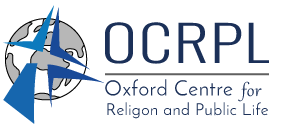In association with NETact, (the Network for African Congregational Theology) OCRPL currently partners with the University of Pretoria in South Africa to offer joint doctoral programmes in which OCRPL provides seminars, mentoring and co-supervision with supervisors from the University of Pretoria. Other partnerships with reputable universities are being explored as OCRPL strives to broaden its network of institutions that offer credible academic theological qualifications.
Characteristics of the Degree
- Advanced research competency in areas of theological study relevant for Christian ministry and missions.
- Fields of study in all areas of Christian theology and ministry, particularly in religion and public life, mission studies, world religions, Christian ethics, and pastoral theology.
Course Details
| Learning Style | Online |
| Course Length | Upto 5 years (part time) |
| Residency Length | 4 months spread over the course of the degree |
| Start Date | Upon successful provisional admission to the university. |
| Application Dates | All year |
| Estimated Total Cost | $8,750 |
| Available Facilities | OCRPL Library Extensive online resources at OCRPL and the University of Pretoria. |
Why OCRPL?
OCRPL is unique in
a) Providing support and guidance to candidates in the process of applying for a post-graduate doctoral degree and taking the step up from master’s level work to making an original contribution to their field
b) Providing a community of peers doing research in allied fields to encourage, engage with and stimulate each other through the research process.
c) Selecting a second supervisor from anywhere in the world who is particularly appropriate for the student’s research and who is theologically aligned with OCRPL’s statement of faith.
The goal of the OCRPL doctoral programme is to develop a group of scholars from, and in, the Global South to educate and guide their churches in theological and missiological engagement with their societies based on the research they complete. The earned doctorate will qualify graduates to contribute to academic publications, teach at post-graduate level, supervise research and, most importantly, contribute new knowledge to their chosen field of involvement.
Who is this course designed for?
The typical student will be a Christian with experience in ministry and a commitment to Biblical, orthodox, creedal faith. He or she will be interested in a multi-cultural, international educational experience. He or she will want to reduce the costs of an advanced degree while obtaining a validated degree from an internationally recognised university. Applicants will have obtained a master’s degree from an accredited institution and have significant years of experience in the area of ministry relevant for advanced study.
How is the course delivered?
- Upon application, the student begins a process of demonstrating capability in pursuing doctoral research that is based solely on a research thesis.
- There are no taught courses or examinations.
- The initial process includes an online workshop for three to four weeks on research methodologies and working on a research topic. During this period, which could take up to twelve months, each student will be provided with a supervisor and will develop a pre-proposal for the university to consider.
- The pre-proposal will demonstrate the student’s ability in formulating a detailed research question, in showing awareness of literature in the field, and in producing an appropriate methodology. This culminates in submitting a 25-page research proposal for consideration for full PhD researcher status.
Applicant Requirements
- Students wishing to apply should have a minimum of a relevant master’s degree, and a prior under- or post-Grad theological qualification from a credible university or seminary.
- All students will need to apply to the South African Qualifications Authority (SAQA) to have their qualifications evaluated.
- Students will need to obtain a National Qualifications Framework (NQF) level of 9 to gain admission to a South African university.
- Students with qualifications from institutions not recognised by SAQA, could be evaluated for eligibility based on Recognition of Prior Learning (RPL).
- Student require an official recommendation letter from a sponsoring body such as their denomination or mission society.
Costs
| Tuition Fees | |
| First Year | $2,000 |
| Second Year | $2,125 |
| Third Year | $2,250 |
| Fourth Year | $2,375 |
| Total | $8,750 |
*Fees include SAQA payments, application fees, initial registration fees, and any international levies payable to the universities.
Scholarship assistance
Candidates are expected and encouraged to source their own fees and expenses. Some gain assistance from their sponsoring institution, (church or college); others apply to scholarship funding bodies. OCRPL is able to consider applications for scholarship support from applicants who can show they are sourcing at least 50% of their costs.
Recent graduates have completed theses on the following topics
- Reading Deuteronomy 16-18 within the Context of Nepotism and Corruption in ECWA, Nigeria: A Theological-Ethical Study
- Towards a Contextualised Conceptualisation of Social Justice for Post-Apartheid Namibia with Reference to Allan Boesak’s Framing of Justice.
- Church, State and the Ethical Imagination: A Phenomenological Study of Christian, Cultural and Constitutional Value Clashes in South Sudan


